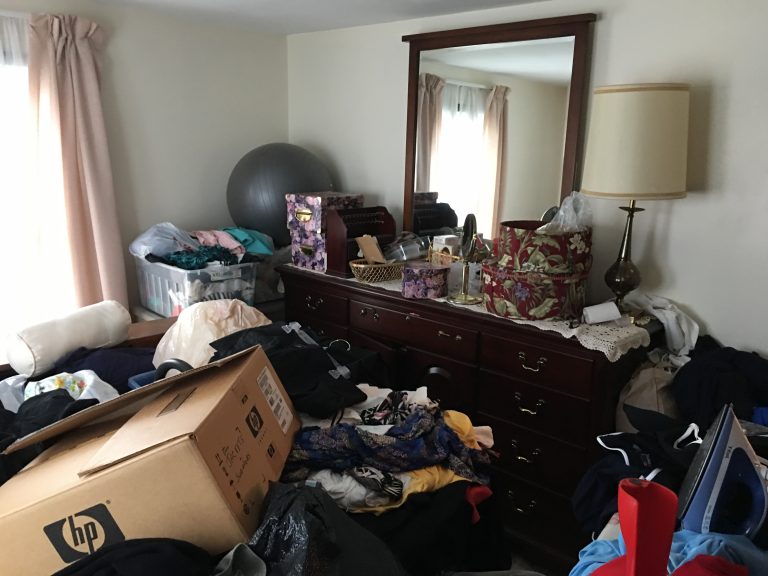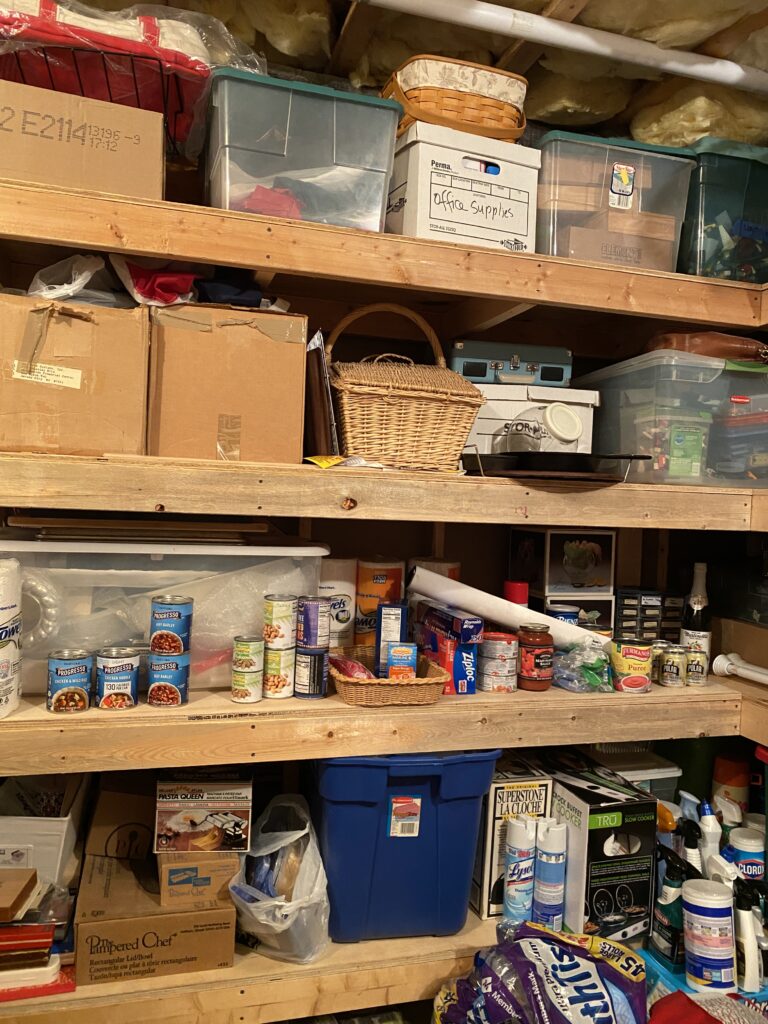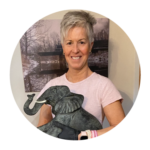Starting the Conversation:
Dealing with the stuff of life

My mother hinted at “the conversation” years ago by suggesting that I start putting my name on items I wanted to inherit. Too morbid, I argued, and refused. I didn’t want to think about losing her. Sure, I treasured the mechanical calendar I changed daily as a kid, and the vintage YWCA poster that reminded me of her tenacity. But claiming them now seemed vulture-like. And it saddened me to think these things would be mine just because she was gone. Denial somehow legitimized ignoring the larger issue – how to prepare for that last chapter in life, when you don’t need as much stuff, or anything at all.
In the past few years, we’ve heard a lot about downsizing, – or right-sizing – the process of shedding unwanted personal property. Everyone agrees they need to do it. Almost everyone also says “But I’m so overwhelmed and don’t know where to start.” Downsizing is difficult for older adults because it means parting with objects that hold priceless memories. For many, their stuff is a mirror, reflecting their life’s work and their story. Letting go feels like losing a piece of themselves.
Other folks are overwhelmed with the sheer amount of work involved in making thousands of decisions (keep/sell/toss), then getting the stuff out the door. They don’t know what to do, or how they’d ever muster the energy, so they do nothing. It’s been called “Paralysis by Possessions.”*
Then there are those who can’t accept the financial reality that no one likes their used stuff as much as they do. So they keep it.

Think about what’s in your home. Think about how many decisions you need to make about every category of possessions, every last piece of paper, every item on every surface, in every drawer, closet, garage, basement and attic. That’s a lot of decisions, which will consume a lot of time and even more emotional energy.
Think about the physical work involved in crawling in, digging out, sorting, carrying, boxing, tossing, and moving all that stuff. It’s tiring.
And then think about how powerless you might feel if you couldn’t participate in the decision making process. Or how frustrated you’d be because physical challenges or limited time and energy slow you down. Or how stressed you’d feel facing a looming deadline.
Don’t wait. Take action now while you can still do the work, or at least be involved. Pace yourself and get help. You’ll be less stressed and feel more in control and less like a victim of circumstance.
You likely have items you want a certain someone to have. Or plans about how you want to disperse your estate. So write it all down and share the list, so everyone knows what’s intended for whom. Or have them tell you. Either way, be intentional and communicate what you want, even as part of your will. It will minimize guessing, greedy grabs, legal intervention and chaos, all of which can tear apart the tightest-knit families.
Some folks downsize by gifting special possessions at holidays. My dad gives my brother an antique cast iron bank from his collection each Christmas. I know my brother appreciates it more than another sweater.
The Silver Tsunami is sweeping through America and eleven thousand people a day are turning 65, leaving behind a wake of stuff, since everyone is downsizing (or will be after reading this article). The younger generations have their reasons for not wanting to buy the cast-offs of the previous generation (they’re not collectors, like different styles, have already filled their homes…). Simply put, there’s too much stuff and not enough demand. That drives prices down, and drives Boomers crazy.
Your choice: pocket what you’re offered, or pass your beloved objects on to a respectful taker. My advice to clients who shudder at the fair market value of their items is to locate someone who will absorb what won’t sell. It often takes time and persistence to find that good soul, so start now to learn what your items are worth and plan accordingly. A certified Estate Liquidator or Personal Property Appraiser can provide impartial valuation services and advice on the best way to liquidate.
And don’t be surprised if family says no to the heirlooms and even the photos. There are alternatives to capturing the memories without saving the items themselves. It just takes time and planning to preserve the past.
So start the conversation. And keep it going. Make efforts today to deal with the stuff, and everyone will be less stressed in the end.

By Bridget Donnelly, Owner
Donnelly’s Estate Liquidation & Appraisal Services, LLC
www.ImSoOverwhelmed.com
[email protected]
Bridget Donnelly is the founder of Donnelly’s Estate Liquidation & Appraisal Services, a Centre County, PA-based business that has helped hundreds of people cope with the stresses of downsizing, moving and shedding unwanted possessions. Bridget is certified as a Senior Move Manager, Estate Liquidator and Personal Property Appraiser. She’s happy to listen to your downsizing challenges: email her at [email protected].

Donnelly’s Estate Liquidation & Appraisal Service, LLC
Estate Liquidation, Appraisals, Senior Relocation Services
Phone 1-814-360-3259
Email: [email protected]
